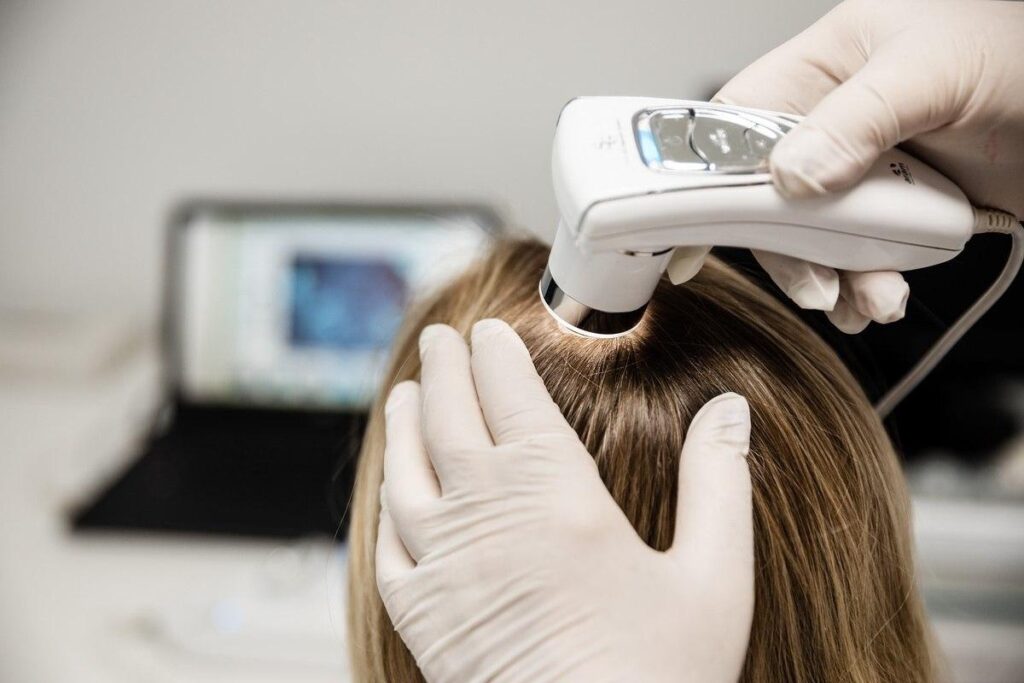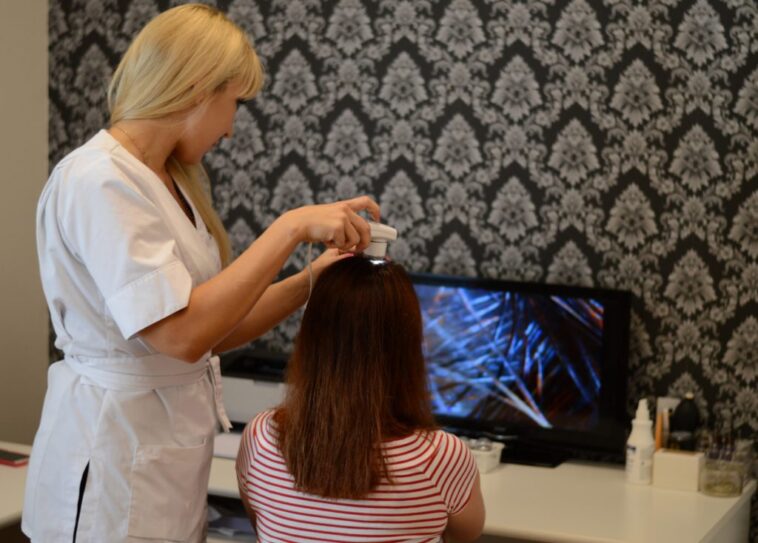Hair loss can be a distressing experience that impacts not just your appearance, but also your confidence and self-esteem. Whether you’re noticing thinning patches, a receding hairline, or widespread shedding, consulting with a Hair Specialist Doctor in Dubai might be the first step toward finding an effective solution. These medical professionals have the expertise to diagnose the underlying causes of your hair loss and recommend appropriate treatments based on your specific condition.
Understanding the Causes of Hair Loss
Before exploring treatment options, it’s important to understand that hair loss can stem from various factors:
- Genetic predisposition (androgenetic alopecia or pattern baldness)
- Hormonal changes during pregnancy, childbirth, menopause, or thyroid issues
- Medical conditions like alopecia areata, scalp infections, or trichotillomania
- Medications for cancer, arthritis, depression, heart problems, or high blood pressure
- Nutritional deficiencies in iron, protein, or essential vitamins
- Stress and trauma, both physical and emotional
- Hairstyling practices that damage hair follicles over time

Diagnostic Approaches
When you visit a hair specialist, expect a comprehensive evaluation that may include:
Physical Examination
The specialist will carefully examine your scalp, the pattern of hair loss, and the condition of your remaining hair. They may use a densitometer or other specialized tools to assess hair density and quality.
Medical History Review
Your medical background, family history of hair loss, medication use, and lifestyle factors all provide valuable insights into potential causes.
Blood Tests
These can reveal hormonal imbalances, nutritional deficiencies, or underlying medical conditions contributing to hair loss.
Scalp Biopsy
In some cases, the specialist might take a small sample of scalp tissue to examine under a microscope, helping to identify specific conditions affecting the hair follicles.
Trichoscopy
This non-invasive technique uses a specialized microscope to closely examine hair shafts and the scalp, revealing details not visible to the naked eye.
Treatment Options for Hair Loss
After diagnosis, a hair specialist can recommend various treatment approaches:
Medication-Based Treatments
- Minoxidil: Applied directly to the scalp, this over-the-counter medication can slow hair loss and stimulate regrowth in some cases.
- Finasteride: This prescription medication works by blocking the hormone that causes hair follicles to shrink, particularly effective for male pattern baldness.
- Anti-androgens: For women with hormone-related hair loss, medications that block androgen production may be prescribed.
- Corticosteroids: These can be injected, applied topically, or taken orally to treat inflammatory conditions like alopecia areata.
Advanced Therapeutic Approaches
- Platelet-Rich Plasma (PRP) Therapy: This involves injecting your own blood plasma, enriched with platelets, into the scalp to stimulate hair growth.
- Low-Level Laser Therapy (LLLT): Special devices emit low levels of laser light that may stimulate hair follicles and improve circulation to the scalp.
- Mesotherapy: A technique involving injections of vitamins, minerals, and amino acids directly into the mesoderm (middle layer of skin) to nourish hair follicles.
Surgical Interventions
- Hair Transplantation: During this procedure, hair follicles from dense areas (typically the back of the head) are moved to thinning or balding areas.
- Scalp Reduction: For certain types of baldness, the surgeon may remove portions of bald scalp and bring hair-bearing scalp closer together.
Nutritional and Lifestyle Interventions
Hair specialists often recommend complementary approaches:
- Dietary adjustments to ensure adequate protein, iron, zinc, and vitamins
- Stress management techniques to reduce cortisol levels
- Gentle hair care practices to minimize damage
- Scalp massage to improve blood circulation
The Importance of Personalized Treatment Plans
Each person’s hair loss situation is unique, requiring an individualized approach. What works for one person may not work for another. A specialist will consider your:
- Type and extent of hair loss
- Age and overall health
- Personal preferences
- Long-term goals
- Lifestyle factors
What to Expect from Treatment
Setting realistic expectations is crucial when undergoing hair loss treatment:
- Results typically take time to become visible (often 3-6 months or longer)
- Some treatments require lifelong maintenance
- Combination approaches often yield better results than single treatments
- Early intervention generally leads to better outcomes
Emerging Treatments and Research
The field of hair restoration continues to evolve with promising developments:
- Stem cell therapy to regenerate hair follicles
- Exosome treatments that deliver growth factors to hair follicles
- JAK inhibitors for treating autoimmune hair loss conditions
- Gene therapy targeting specific genetic causes of hair loss
Conclusion
Hair loss can be effectively managed with the right approach and expert guidance. A qualified Hair Specialist Doctor can help identify the underlying causes of your hair loss and develop a comprehensive treatment plan tailored to your specific needs. With advances in medical technology and a growing understanding of hair biology, there are more options than ever for addressing hair loss and restoring not just your hair, but also your confidence.
This post was created with our nice and easy submission form. Create your post!




